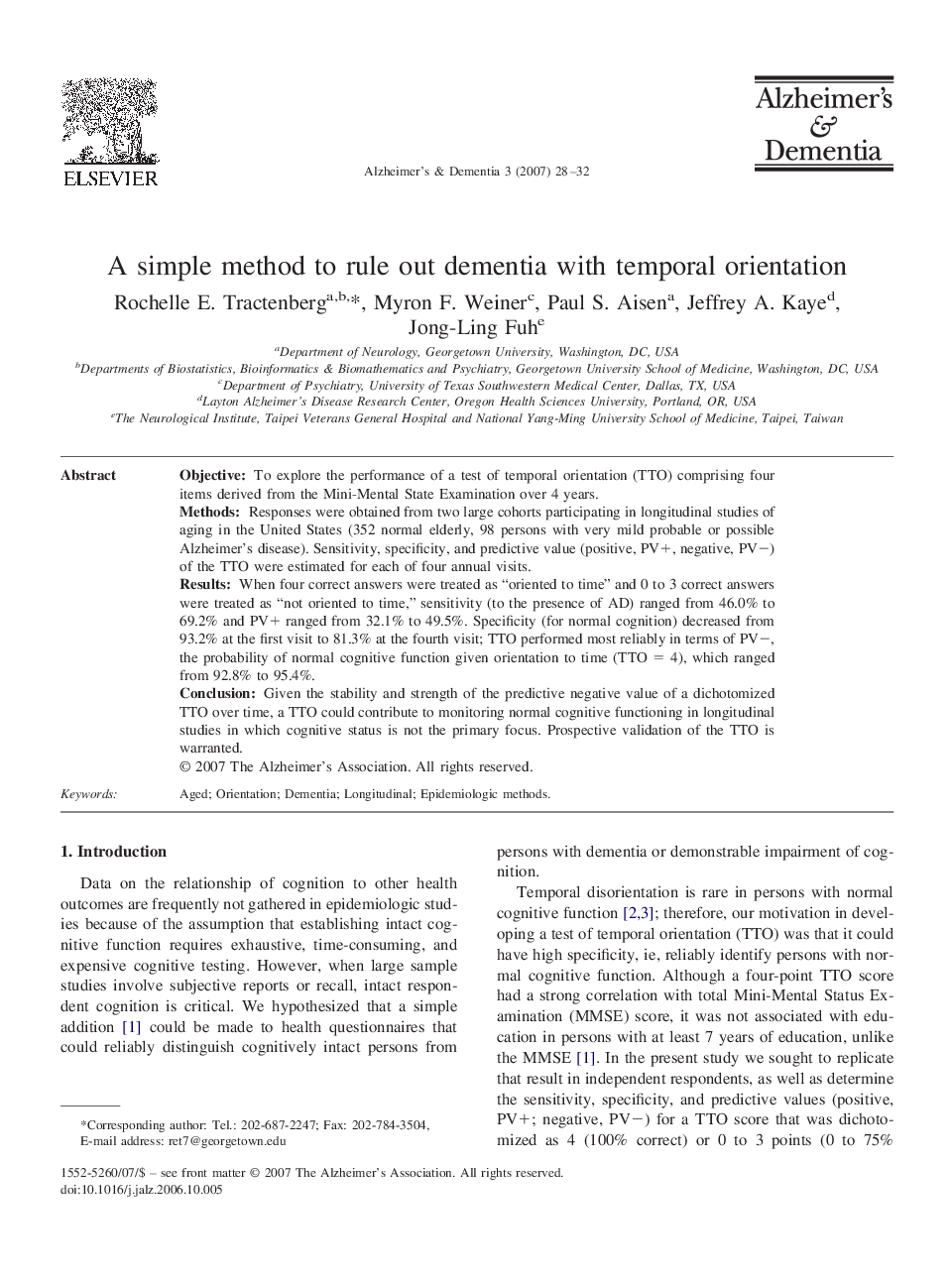| Article ID | Journal | Published Year | Pages | File Type |
|---|---|---|---|---|
| 5625022 | Alzheimer's & Dementia | 2007 | 5 Pages |
ObjectiveTo explore the performance of a test of temporal orientation (TTO) comprising four items derived from the Mini-Mental State Examination over 4 years.MethodsResponses were obtained from two large cohorts participating in longitudinal studies of aging in the United States (352 normal elderly, 98 persons with very mild probable or possible Alzheimer's disease). Sensitivity, specificity, and predictive value (positive, PV+, negative, PVâ) of the TTO were estimated for each of four annual visits.ResultsWhen four correct answers were treated as “oriented to time” and 0 to 3 correct answers were treated as “not oriented to time,” sensitivity (to the presence of AD) ranged from 46.0% to 69.2% and PV+ ranged from 32.1% to 49.5%. Specificity (for normal cognition) decreased from 93.2% at the first visit to 81.3% at the fourth visit; TTO performed most reliably in terms of PVâ, the probability of normal cognitive function given orientation to time (TTO = 4), which ranged from 92.8% to 95.4%.ConclusionGiven the stability and strength of the predictive negative value of a dichotomized TTO over time, a TTO could contribute to monitoring normal cognitive functioning in longitudinal studies in which cognitive status is not the primary focus. Prospective validation of the TTO is warranted.
